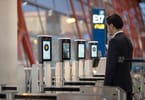In the first three months of 2016, 30.2 million outbound border-crossings were made from Mainland China. This figure, which has been published by COTRI China Outbound Tourism Research Institute having been drawn from its own internal calculations, represents an increase of only 2.4% from the 29.5 million made during the same period in 2015. This is the lowest growth rate reported since the beginning of outbound tourism from China in 1997 and the first single-digit growth rate in the current decade.
Based on extensive research using available information from host countries as well as from within China, COTRI has begun to publish its own figures for quarterly border-crossings from Mainland China for the first time. These calculations take a wide range of factors into account, including possible double-counting for instance in Schengen Area countries as well as differences between travellers’ nationality and country of residence.
The surprisingly small year-on-year average growth rate of 2.4% calculated for the first quarter of 2016 masks two very different trends:
The arrival numbers for Hong Kong fell dramatically by 15% from 12.3 million to 10.4 million and slipped in Macau by 2% from 5.0 million to 4.9 million, resulting in an overall decrease of 11% for China’s Special Administrative Regions (SARs) in Q1 2016.
In the rest of the world, however, this loss of almost two million arrivals was cancelled out by an increase of about the same amount of the combined arrival figures for Thailand, Japan, South Korea, Vietnam, Singapore, Taiwan and the UAE. Given the strong increases in arrivals from China for many countries especially in Europe and North America, it is possible to calculate a growth rate of 22% for the rest of the world, resulting in an overall growth rate of 2.4%.
The market share of the Hong Kong and Macau SARs fell from 59% to 51%. With the negative trend for Hong Kong and Macau likely to continue, the second quarter of 2016 will most likely be the first time that the SARs are no longer responsible for more than half of all departures from Mainland China.
Even within these averages, there are two different hidden stories: two thirds of the missing arrivals in Hong Kong were not leisure visitors but day trippers, a result of the restrictions on small “ant” traders who used to cross daily from Shenzhen into Hong Kong to take advantage of the lower prices of consumer goods in the SAR. Some Chinese nationals were also living in Shenzhen yet working in Hong Kong, again crossing the border on working days. In Macau the number of overnight visitors even increased by about 100,000 in the first quarter of 2016, while day tripper arrivals fell by about 200,000.
WHAT TO TAKE AWAY FROM THIS ARTICLE:
- Given the strong increases in arrivals from China for many countries especially in Europe and North America, it is possible to calculate a growth rate of 22% for the rest of the world, resulting in an overall growth rate of 2.
- two thirds of the missing arrivals in Hong Kong were not leisure visitors but day trippers, a result of the restrictions on small “ant” traders who used to cross daily from Shenzhen into Hong Kong to take advantage of the lower prices of consumer goods in the SAR.
- In the rest of the world, however, this loss of almost two million arrivals was cancelled out by an increase of about the same amount of the combined arrival figures for Thailand, Japan, South Korea, Vietnam, Singapore, Taiwan and the UAE.






















